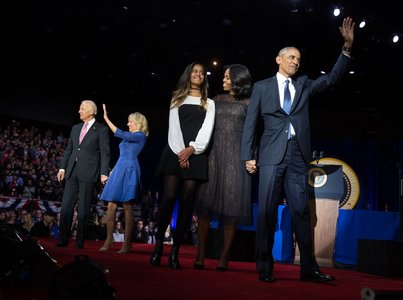President-elect Donald Trump's vow to have better relations with Russia continue to cast a cloud over his transition to the White House as the 45th president. Trump's repeated praise for Russian President Vladimir Putin has put the president-elect at odds with the intelligence community and members of his own party on Capitol Hill. In his first press conference since being elected, Trump also addressed questions about conflicts of interest from his business empire.
Full Episode: Trump answers questions about ties to Russia one week before inauguration
Jan. 13, 2017 AT 9:40 p.m. EST
TRANSCRIPT
Notice: Transcripts are machine and human generated and lightly edited for accuracy. They may contain errors.
AMY WALTER: Russia takes center stage in Washington on the eve of Inauguration Day, and the FBI goes under the microscope for its pre-election probe of Hillary Clinton’s emails. I’m Amy Walter, we tackle it all tonight on Washington Week .
PRESIDENT-ELECT DONALD TRUMP: (From video.) I think it was disgraceful – disgraceful – that the intelligence agencies allowed any information that turned out to be so false and fake out.
MS. WALTER: The president-elect concedes Russia was behind election hacking, but then accuses intelligence agencies of leaking an unverified dossier.
PRESIDENT-ELECT TRUMP: (From video.) That’s something that Nazi Germany would have done and did do.
MS. WALTER: Meanwhile, Trump’s top Cabinet picks are at odds with their future boss, expressing support for the U.S. intelligence community and united in their belief that Russia does pose a danger.
REPRESENTATIVE MIKE POMPEO (R-KS): (From video.) It’s pretty clear about what took place here, about Russia involvement in efforts to hack information and to have an impact on American democracy.
MS. WALTER: Plus, why ethics experts across the political spectrum are skeptical of the incoming president’s plan to separate himself from his international business empire. And did the Justice Department and FBI mishandle the investigation of Hillary Clinton’s email server?
We’ll get answers and analysis from Julie Hirschfeld Davis of The New York Times , Michael Crowley of POLITICO , Karen Tumulty of The Washington Post , and Manu Raju of CNN.
ANNOUNCER: This is Washington Week . Once again, from Washington, Amy Walter.
MS. WALTER: Good evening. President-elect Trump launched another tweetstorm today, taking aim at the intelligence community, the media, and political opponents from both parties. It was all about an unverified dossier that suggests Russian intelligence has compromising information on him. This is what Trump tweeted: “Totally made up facts by sleazebag political operatives, both Democrats and Republicans – FAKE NEWS! Russia says nothing exists. Probably released by “Intelligence” even knowing there is no poof, and never will be. My people will have a full report on hacking within 90 days!” The 35-page document was not prepared by U.S. intelligence, but the contents were summarized and presented to Mr. Trump and President Obama during a briefing last week.
So, Michael, can you help us unpack all of this? What was this dossier? Where did it come from? And why did it make Donald Trump so angry?
MICHAEL CROWLEY: Well, it’s a lot to unpack. We’ll try to do it quickly. The dossier was the work of a former British intelligence agent whom U.S. intelligence officials – we now know his name – say was a credible guy, did serious work, had real contacts in Moscow, doing private sort of PI-type work for hire, no longer in the British government. Originally hired by a Republican whose identity we don’t know, and then later – after Trump won the primaries and we moved on to the general election – was doing work for Democrats.
And he, working his old sources in Moscow, compiles these 35 pages of reports about Donald Trump, which are quite scandalous, and, you know, run the gamut from charges that track with things that the intelligence community says are true – which is that the Kremlin, directed by Vladimir Putin, had an organized plan to interfere in the U.S. presidential campaign, to harm Hillary Clinton and help Donald Trump – running the spectrum to pretty wild and sensational and quite salacious charges that would involve Donald Trump being compromised, possibly on videotape. And I won’t get into the details, but they are now publicly available for the world to see.
The U.S. intelligence community summarized, as you said, those charges into an appendix of a document that Trump was briefed on, essentially to say, as we are told, you should just know that this is out there. It may come out. It’s kind of a heads-up for you. After CNN reported on the existence of that appendix, the website BuzzFeed, which likes to cause trouble, published the original document in its full candid glory for the world to see. And Trump was very upset by that, and thought the intelligence community was essentially out to get him in this ongoing battle they have.
MS. WALTER: Well, that’s the – that’s the interesting question, because the intelligence community has not verified any of this, right? We don’t know if this is true. And yet, they included it in the briefing. Why include something that you don’t know if it’s true or not?
MR. CROWLEY: So I think there are different interpretations of this. I mean, there’s one school of thought, and some of the reporting suggests, that intelligence officials considered this British – this former British agent to be a credible guy with good sources. And, you know, I’ve spoken to people who say they’ve read documents like this. And this looked like a professional document not done by a crank or a screwball. And so – and you wouldn’t present – you wouldn’t tell the president about something that you thought didn’t even pass the laugh test.
But the other theory is simply to say it’s out there, it’s probably coming out. We’re kind of doing you a favor here. And it’s a little bit of a national security matter because this could be disinformation, this could be a smear. And you need to know about it. We feel like it’s our responsibility, however embarrassing it is, to tell you about it.
KAREN TUMULTY: And that’s because the intelligence agencies knew that these documents have been in the hands of most major news organizations –
MR. CROWLEY: Yes, that’s an important –
MS. TUMULTY: – in Washington for months. Now, news organizations have not run with them because they are – have been thus far unverifiable.
MS. WALTER: They’re not verified, right.
MS. TUMULTY: So when Donald Trump, President-elect Trump, is accusing the intelligence agencies of leaking it, he’s really escalating his conflict with his – in what – in his – in a week is going to be his own intelligence community. And, again, it’s over something that actually news organizations seem to have gotten outside.
MS. WALTER: So, Karen, how is going to work with these intelligence agencies as president when he’s still tweeting, saying that they’re “intelligence”?
MS. TUMULTY: That is a very big question. This is – this is – a lot of presidents have had somewhat adversarial relationships with the intelligence community, going back at least as far as Dwight Eisenhower. But the level of open hostility that Donald Trump has displayed, even before his inauguration, I think is something that – you know, there’s nothing even close to a precedent for something like this.
MS. WALTER: And, Julie, you were there at the press conference when Trump lashed out at the media, he lashed out at the intelligence community. He didn’t say much about Russia, though. He didn’t lash out at them.
JULIE HIRSCHFELD DAVIS: Well, that’s what was so striking about all of this, is we had heard for weeks all of these suspicions he had about the intelligence community, that they were somehow skewing what they learned, they weren’t telling him or his aides what they knew. When finally he got the briefing, he put out a somewhat supportive statement, and said, you know, I respect the intelligence community. I’m going to do my own probe about hacking. But it was so striking at this news conference to hear him lash out at the press: It’s a disgrace. He, you know, called out reporters individually, called them fake news.
But when it came to Vladimir Putin he did say, yeah, Russia hacked. Then a few minutes later he said, well, it could have been someone else also. But when he was asked, you know, how he felt about that and what he would say to Putin it was, they shouldn’t have done it. He shouldn’t have done it. And when I’m president he won’t do it. But there was no level of outrage. There was no level of indignation that a foreign leader of a country that is not a friend of the United States had undertaken to meddle in an election. And that was a really striking distinction, given how tough he has been on his own – what will be his own intelligence community.
MS. WALTER: His own intelligence community. And, Manu, I know that on the Hill members had been briefed. What are they going to do about this?
MANU RAJU: Well, we know they’re going to have investigations. There’s already several that are happening in the Senate Armed Services Committee, Senator Foreign Relations Committee, also on the House Intelligence Committee. Now today – tonight, there was a key development in the Senate Intelligence Committee, which was already planning to look into the Russia hack and broader cybersecurity issues.
But in a statement released tonight by both the Republican and Democratic heads of that committee, they say that they were going to look into a variety of things, broadening the scope of the investigation, including potential contacts between the Trump campaign – or, they say, political campaigns, you can assume it’s probably the Trump campaign – and Russia. And as we know, in that 35-page dossier, one of the things they talk about is alleged activity between – contacts between Trump and Russia. Now, those are unsubstantiated allegations, but it’s something that the committees will look into now that this is out there.
MS. WALTER: And was this a reversal? Because earlier there was talk from one of the chairmen of these committees, Republican chairman, that he wasn’t going to do an investigation, now today saying he is.
MR. RAJU: It seems that way. Richard Burr, the North Carolina Republican who does chair that committee, came out of the closed briefing with – the hearing with the potential next CIA director Mike Pompeo after they – assuming he’s confirmed by the Senate. After that Burr talked to reporters, said that it’s not really something that he wants to look into, because it’s a political issue. He may have misspoken. I think that he may have. So I’m not sure if it was a complete reversal.
But the thing that – this is different than what a lot of Democrats and some Republicans want, is a special select committee to look into this. And that’s very significant if they were to establish one like that, because it would raise the prominence of the issue, it would have open hearings, presumably. And by having this in Intelligence Committee, while they’re doing an investigation a lot of that’s going to be in classified settings and the public may not see a lot of the things that are happening.
MR. CROWLEY: It’s a sign, with the inauguration coming, this pot is boiling over. It is not cooling down. I think Trump was probably hoping we would get past it and move on to other things, and it’s boiling away.
MS. WALTER: Well, and a little bit more boiling happened today when, in The Washington Post , David Ignatius reports that Michael Flynn, who is going to be the incoming national security advisor, had conversations with the Russian ambassador on the same day that the president – that President Obama put the sanctions down.
MR. CROWLEY: Yeah. When it rains, it pours. It keeps coming. It’s amazing. It’s a deluge of this stuff. Now, it’s not clear – at first blush, the fact that this Trump advisor is talking to the Russian embassy in the middle of everything that’s happening I think struck people as spooky and potentially weird. It’s not necessarily scandalous or even improper. It’s typical for an incoming administration to have contacts with foreign governments. We know Trump’s been taking all these calls, and so have many of his advisors.
The question is whether Flynn might have been in any way trying to subvert or undermine President Obama’s, you know, sort of dwindling policy actions towards Russia, including the imposition of sanctions around Christmastime. I think there were multiple conversations, and one of them was right around the time Obama announced these sanctions. The Trump camp is saying that the conversations did not involve sanctions, were fairly innocuous. Included, for instance, an invitation for a Trump representative to join a Syria multilateral peace conference that the Russians will be part of.
But I just want to say, I think actually the key and most interesting thing here is the fact that we learned about this conversation – that the intelligence community clearly – I mean, I don’t know exactly who David Ignatius’ source was – the intelligence community seems to have said: David Ignatius, you might be interested in the fact that Michael Flynn’s been talking to the Russian embassy. Well, that’s obviously coming from some kind of a wiretap or surveillance. And clearly someone in the IC is giving the Trump camp a headache that may not lead anywhere, may not be a scandal, but I think it’s part and parcel of this ongoing war between Trump and the intelligence community, and a reminder of why it is dangerous to pick a fight with the intelligence community which probably knows more than you do and will let people know things you don’t want them to know.
MS. DAVIS: Well, and it’s interesting too because some of the speculation around why that two-page appendix might have been in the report about the salacious allegations is just that, to let him know that they have access – just as news organizations do and other intelligence officials throughout the world – to some of this information. And it could be compromising to Donald Trump, and to sort of tip him off that, you know, this is the way this works, so you might want to be careful. There was also another story this week that came out of Israel about U.S. intelligence officials reportedly having told Israeli intelligence: Be careful what you say, be careful with your secrets when you’re talking to the Trump people because they are – he is close with the Russians, it might get to Russia, and in turn might get to Iran. So these are the sorts of things that –
MR. CROWLEY: Never mind his Twitter account.
MS. DAVIS: Yeah, exactly.
MR. RAJU: And there’s a subplot too. Even Senator John McCain is part of this too. He met privately with James Comey in December to discuss these same allegations that he heard about from a separate source. So a lot of unusual developments here, but also a sign of the challenges ahead, because a lot of people on the Hill and in the intelligence community are just unsettled by his praise and his potential – and his fondness of Vladimir Putin.
MS. TUMULTY: He again asserted this week at his news conference that a warmer relationship with Vladimir Putin would be an asset not a liability to this country.
MS. WALTER: Well, and Karen, that’s what I wanted to get to, was he was saying that, but there are a lot of folks on the Hill who are his appointees to serve in the Cabinet who aren’t thinking so fondly about Russia. So talk to us about what we learned from these hearings, and the sort of disconnect between what we hear from Donald Trump and what we’re hearing from the people who’ll be in charge of the State Department and the CIA and Homeland Security.
MS. TUMULTY: Well, yeah, in the same week where he was talking about the – again, the benefits of a warmer relationship, his nominee for defense secretary, General Mattis, was testifying in his confirmation hearing that it would be essentially – that any read of history would tell you that it would be naïve to think that there is some benefit, that in fact Vladimir Putin is out to essentially destroy the Western alliance. But that was not even the beginning of how many of Donald Trump’s Cabinet-level nominees were up on Capitol Hill in their confirmation hearings airing their differences with the president-elect, to whom they will be – for whom they will be working.
Rex Tillerson, the nominee for secretary of state, said that – you know, he sounded a totally different note on climate change, said the United States needs to be part of an international effort to combat it. Donald Trump has expressed skepticism.
MS. DAVIS: Called it a Chinese hoax.
MS. TUMULTY: A Chinese hoax – (laughs) – exactly. And he also said, you know, that, and also we need to be at the table in things like the Paris accords that Donald Trump has said he will get us out of. You have several of his nominees expressed, you know, an absolute commitment not to engage in tactics like waterboarding in interrogating terrorism suspects. It was just sort of one after another.
MS. WALTER: So is this – is this all that new? I mean, we’ve heard for a while now about a team of rivals. You want people around you that have different opinions and it’s a good idea to have people challenging you.
MS. TUMULTY: This is different, because this is challenging – it’s one thing to have your advisors debating among themselves what a policy should be. To have Cabinet-level officials in their confirmation hearings declaring that they are on not the same page, they are on the opposite side of the president-elect on issues that are the issues on which he campaigned, is extraordinary. His Department of Homeland Security head said that building a wall on the border is, you know, not the be-all and end-all of security. And several of them – again, the DHS nominee – said he’s never so much as just been part of the immigration discussions with the president for whom he is going to serve. Rex Tillerson said that he has not discussed Russia with the president.
MS. WALTER: Well, and just quickly, Manu, the Rex Tillerson was the most probably contentious of the hearings, specifically from one of the Republicans questioning him, Marco Rubio. Is there any question about whether he’ll get confirmed? Is there a possibility that he doesn’t make it?
MR. RAJU: There is a possibility he doesn’t make it, because we don’t know what Marco Rubio is going to do. And we don’t know what the Democrats are going to do yet. Right now that Senate Foreign Relations Committee is split. There’s a one-seat advantage for the Republicans. So if the Democrats all vote no and Marco Rubio votes no, then it’s a problem. There are procedures they can use to advance that nomination to the floor. That’s rarely done. It would create an uproar. And it could be problematic on the floor, because there are 52 Republican senators. If all the Democrats, again, they vote no, then you lose John McCain and Lindsey Graham, who are also concerned, and Marco Rubio – he doesn’t get confirmed. So he may have to rely on Democratic support.
MR. CROWLEY: And this is why it’s so odd that Trump sticks to his guns on Russia. If he would just give some ground I think Tillerson would go through. He would pop this blister. But he’s still embracing Vladimir Putin in this way that I think is going to cause big fights in the Congress that he doesn’t need.
MS. WALTER: All right. We’re going to go – we’re going to change gears for one minute, because we have to talk about Donald Trump the billionaire businessman who announced this week that he’d hand over control of his empire to his two eldest sons. But the director of the Office of Government Ethics blasted the president-elect, calling the plan to avoid conflicts of interest wholly inadequate.
Again, Julie, you were there at the press conference. He had the piles of papers, piles of papers.
MS. DAVIS: Piles of manila folders.
MS. WALTER: His attorney, though, came out and said: There are no problems. She walked through all of the reasons why there were not conflicts of interest. Why is there still a problem that many government watchdogs have with this?
MS. DAVIS: Because what Donald Trump has refused to do is, A, to divest from his business, to sell the assets, and, B, to put them into a blind trust – that is to say, a trust that he doesn’t control, nor does he have any insight into what’s going on with any of the assets inside of it. So what he has done is created a trust that will be controlled by his two eldest sons.
But we do not know the size of that trust. He’s supposed to be worth $1.5 billion or more, according to some government disclosures that he made. But nobody knows how much is in that trust. Nobody knows who the beneficiaries of that trust are. Nobody knows who the ethics advisor who Donald Trump is going to be able to hire himself – what standards that person will use to decide whether deals can go through or not, whether there’s a conflict of interest or not. And there’s no prohibition against any federal government employee talking to an employee of the Trump organization.
So he is stepping away, but he isn’t doing any of the things he would need to do if he wanted to eliminate both the potential or even the appearance for conflicts of interest here. And what he says is that just by virtue of being president I can’t have a conflict of interest. And so that’s the end of the story. This is all voluntary, out of the goodness of my heart, and to show everyone that I’m really serious about, you know, making decisions in the interest of the country rather than the interest of his business. And that may be true, but the arrangement itself doesn’t tell you that. And there are going to be questions that will continue. There could be legal challenges.
His attorneys seem to think that the emoluments clause of the Constitution – which none of us had ever heard – or, I’ll speak for myself – I had never heard of –
MR. CROWLEY: I’m with you.
MS. DAVIS: – before he won the election in November doesn’t apply here, because the idea is that if a foreign government stays in a Trump hotel, and the Trump organization profits from that, that that’s a fair market value transaction –
MS. WALTER: Even if they donate it to charity?
MS. DAVIS: They’re going – they said that on the profits they make off of foreign governments staying in Trump hotels they will donate to the United States Treasury. But that may not solve the problem, because it’s – it is profit that his company is making off of a foreign government. So we’ll just have to see what kinds of legal challenges arise from this. I don’t think it’s going to go away.
MS. WALTER: Well, and that’s a question about what role do you think that Congress plays overseeing this? Already we’ve seen a fight break out between the Office of Government Ethics and a Republican, Jason Chaffetz, who’s the head of the Oversight Committee, about what role that an independent oversight should have on Trump.
MR. RAJU: Yeah. And Jason Chaffetz is not talking about going after the ethics agreement arrangement that Donald Trump announced this week. He’s talking about going after the Office of Government Ethics head, Walter Shaub, for his very critical comments of Donald Trump, saying that he should completely divest himself to avoid conflicts of interest. Chaffetz wants to have some sort of private interview and to discuss exactly why he’s making these comments. Chaffetz believes that Shaub is not acting in a nonpartisan manner. But folks think that Chaffetz is acting in a very partisan manner.
MS. WALTER: So all of this is going to continue, even on Capitol Hill.
MR. RAJU: Absolutely.
MS. WALTER: That’s right.
OK, we have to get to one last thing – we could spend – there was a firehose of news today – this week. The issue of Hillary Clinton’s email server got a reboot on Thursday, when a U.S. government watchdog announced it was launching an investigation into how the FBI and Justice Department handled the probe before Election Day. Karen, what is this going to look like? And we have five days before the new president is sworn in. What is this going to mean for the new president?
MS. TUMULTY: Well, one thing they are not going to investigate is the actual basic decision that James Comey made, the FBI director made, whether to prosecute or not. But they are going to look into whether he acted properly and the types of disclosures he made – I’m assuming especially the ones on the eve of the election, first when he reopened the investigation and then when he said, oh, never mind – all of which was within, what, five days of the election.
You know, a lot – the Hillary Clinton campaign aides and her allies were thrilled to see this happen. But I think it’s going to be sort of a passing satisfaction. But the fact is, a week from today Donald Trump will be inaugurated. And, you know, both sides here are going to continue to have their resentments. And, you know, just today we had John Lewis, congressman from Georgia whose name is practically attached to the phrase civil rights icon, who said he will not – he’s not going to the inauguration – his first ever since he’s been in Congress – and that he does not consider Donald Trump a legitimate president. This is the environment that we now have in Washington.
MR. RAJU: And Comey himself was on Capitol Hill today and got an earful from House Democrats who were pushing him on this investigation, why he decided to do what he did. Debbie Wasserman Schultz, the former DNC head, really lit into him there. So the tension is just –
MS. WALTER: It’s just significant.
MR. RAJU: Significant, exactly. (Laughs.)
MS. WALTER: And it will be around for a long time.
Well, thank you, everybody. Thanks, everyone, for watching.
Our conversation continues online on the Washington Week Extra , where we’ll talk about President Obama’s farewell address, the surprise he delivered to Joe Biden that made the vice president cry, and why Republicans are – and what Republicans are doing behind the scenes to repeal and replace Obamacare. You can find that later tonight at PBS.org/WashingtonWeek.
I’m Amy Walter. Have a great weekend. And we’ll see you next time.
MOST POPULAR

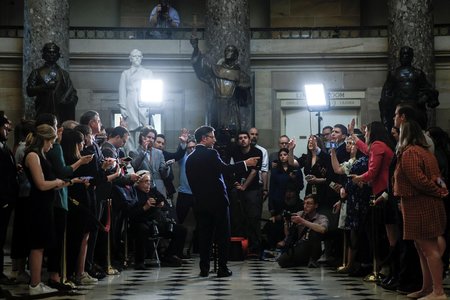
Full Episode: Washington Week with The Atlantic full episode, 4/19/24

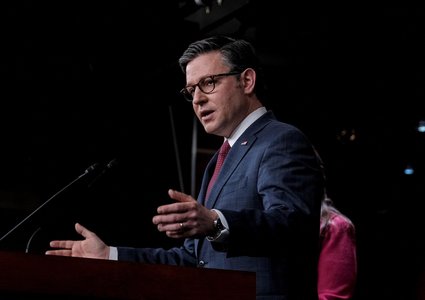
Clip: Will Democrats rescue Johnson's speakership to protect aid for Ukraine and Israel?

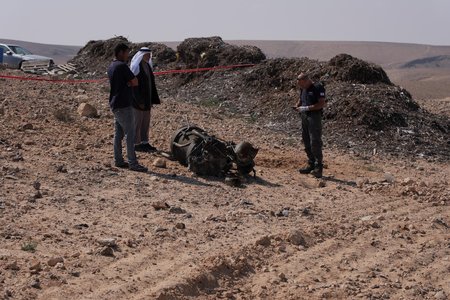
Clip: Attacks in Israel and Iran bring more uncertainty to Middle East
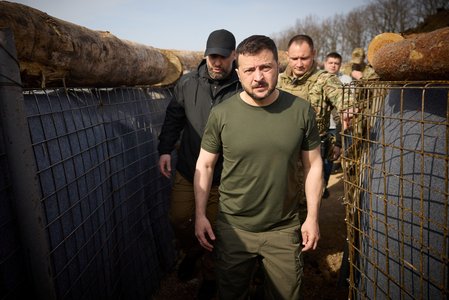
Preview: Coming Up on Washington Week with The Atlantic

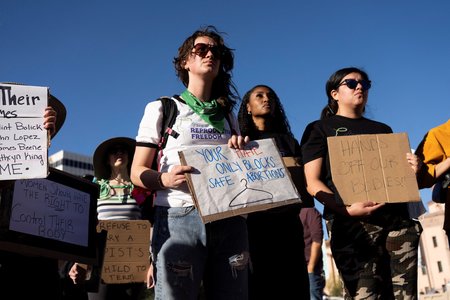
Full Episode: Washington Week with The Atlantic full episode, 4/12/24

© 1996 - 2024 WETA. All Rights Reserved.
PBS is a 501(c)(3) not-for-profit organization
